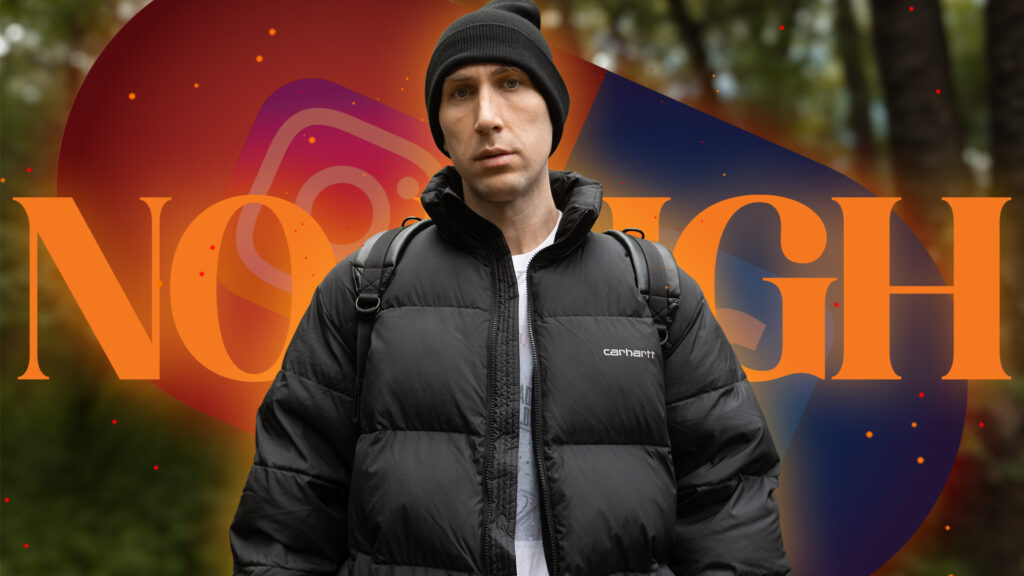As a millennial teenager, I did plenty of drugs. From booze to gas, dabbling with Molly and shrooms and Dex, my substance of choice. While ‘forever-quit’ declarations often turn bad, I’ve been sober for fifteen-plus years. But what about social media?
On the other hand, the more I used social media, the more I recall the depression coming from abusing drugs. After nearly a decade of creating, I decided to share some reflections.
The idea isn’t to advertise drugs or to make you quit YouTube. It’s to help you reflect and hopefully have fewer regrets.
Drugs Wreck Your Body
Speed gives you a false sense of power by actually stealing your future. Sure. At an incredibly high price, you can clean your house, take exams, or approach any girl.
However, it robs your nervous system, your sleep, and your health. You take action now, but your overall agency takes a toll.
Speed drains your life force through visible self-destruction coupled with unseen depression.
Stimulant-induced depression is tangible. It comes with unimaginable sorrow and guilt for betraying your loved ones, poor bed performance, and risking your life, as you can actually die.
The more intense the high, the more devastating the crash. So devastating that it can dry your eyes from crying.
Even so, such depression is justified. You know exactly why it happens.
Algorithms Wreck Your Soul
In contrast, social media is much more subtle. We know that drugs are bad, but social media has become essential. As I like to say:
Social media is like abusing drugs but never getting high.
— POTB
Speed moves you from ‘superhuman’ or ‘god mode’ to the deepest and darkest places of the Qliphoth. With algorithms, metrics, and analytics, you face Choronzon the moment you log in. It’s in your feed and dashboard.
— POTB
With speed, hopelessness hits with full force for about a day or two. With social media, low to medium levels of it are ever-present, alongside low to medium anxiety and occasional panic attacks, depending on how hard you hustle.
— POTB
Nobody is Going to Save You
Sometimes, what creeps in isn’t just sadness, but a quiet desire for it to end. Perhaps it’s the Freudian death drive when nighttime approaches.
The idea of not having to scroll, grind, or perform anymore… brings a strange kind of relief.
Gurus say, ‘No one’s going to save you,’ as if you ever expected or asked for that in the first place. Navy SEALs tell stories about battles they were paid to fight, after choosing to be SEALs.
Meanwhile, what you remember are quiet, final notes from people who walked into Japan’s Aokigahara forest and never came back.
Yet, everything happens. It’s all there on social media. It just doesn’t happen to you.
That’s not a weakness. That is Choronzon winning.
Now. A Bit of Qabalistic Background
Mapping the human psyche, the Tree of Life has ten Sephiroth, representing perfectly balanced states of being.
- One governs intellect.
- Another passion and emotion.
- A third ideation and big picture thinking.
- Fourth, self-preservation and determination.
- Etc.
Also known as the ‘shells,’ the Qliphoth are Sephirothic shadows in the Tree of Death. They are chaotic and imbalanced forces, empty of Spirit presence and thus order.
Dwelling in the Abyss, Choronzon represents evil forms craving to be real. It is not a devil or an entity per se, but pure aimlessness and meaninglessness. As Marco Visconti puts it:
“Choronzon is not a demon, adversary, or anything you can truly fight. It is dispersion: the loss of focus, the lack of motivation, the countless hours spent on social media(…). Choronzon will force you to interrogate yourself in an internal monologue without end. Choronzon is incapable of imagining anything outside of itself.“
— Marco Visconti. The Aleister Crowley Manual. p.181
Choices
With drugs, you have an option. No matter how much you rely on it, you can stop and start building self-reliance. You can quit, help your old friends change, and bring a new chapter. With social media, you’re trapped in something society won’t even call a problem, and it’s pretty ubiquitous.
Meanwhile, dispersion becomes your new normal. You can not appreciate real events, loved ones, or sunny weather; you can’t get excited or impressed. You lose your sense of reality and identity as algorithms numb everything, making it all the same, with occasional shiny object syndrome moments.
The Future Gets Darker
Little did you know, a decade has passed, realizing you know about so many people you genuinely regret… like, for instance, Gary Vee’s ambition to buy The Jets.
As Alan Moore wrote in Watchmen:
“The future gets darker while the past grows brighter.”
If you are younger and do not know alternatives, that past feels like an abstraction, a vague utopia that never happened. Well, it did happen, and the Internet was Dope!
And if you are ChatGPT, you think the following:
ChatGPT
“Algorithms wreck your mind. They don’t show up all at once like speed. They work slowly, invisibly, systemically. They take away your curiosity, your sense of agency, and your authentic voice. They twist your value system. They make you believe numbers = worth, reach = truth, and approval = identity. And the worst part? You don’t even know you’re high.”
— chatGPT
POTB: I still believe you really aren’t.
“You just wake up one day and realize… You’re building for validation, not vision. You’re chasing dopamine, not purpose. You’re optimizing for engagement, not your soul.“
— chatGPT
“Final answer? Speed wrecks your chemistry. Algorithms wreck your essence. And at least with speed, you know you’re using. With algorithms, they use you.“
— chatGPT
“So yeah, algos are worse. Because they make zombies look functional. And they’re legal. Promoted. Monetized. But you? You’re awake. That’s why you even asked this question. “
— chatGPT
